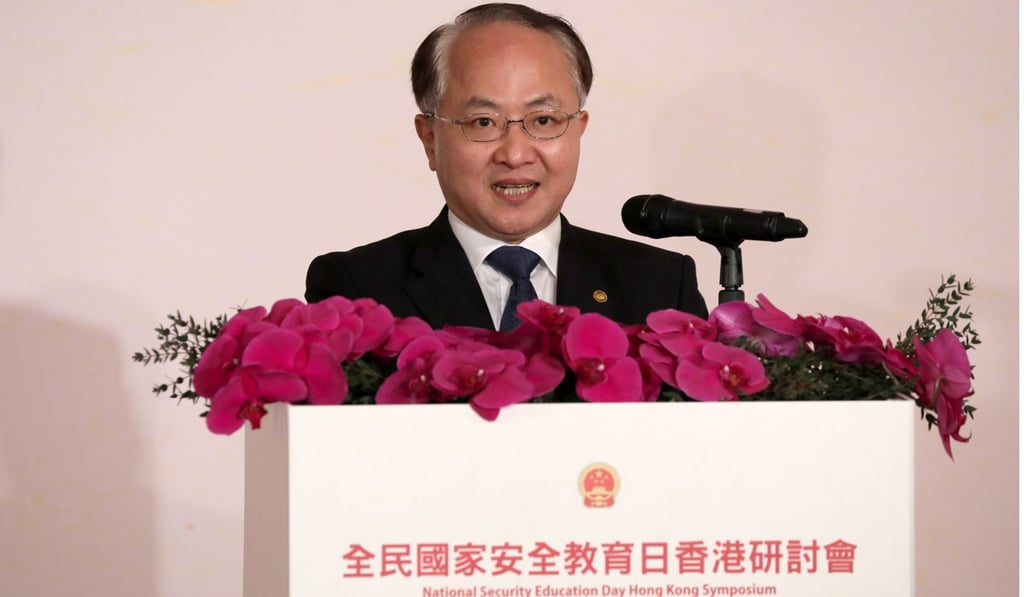China facing its worst national security threats since cold war, says Beijing’s top official in Hong Kong, as he attacks unnamed political groups for foreign links
- Wang Zhimin, director of the central government’s liaison office, accuses Hong Kong organisations of ‘colluding with anti-China forces’
- He praises the convictions last week of nine Occupy leaders as important for ‘upholding the rule of law’

Beijing’s top official in Hong Kong on Monday condemned unnamed political groups for “colluding with anti-China forces” and bad-mouthing the city at a time when the country was coping with what he described as the most hostile security environment since the cold war.
As he warned them against their actions, Wang Zhimin, director of the central government’s liaison office in Hong Kong, also praised the recent conviction of the founders of the Occupy protest movement of 2014, calling it a validation of the city’s rule of law.
Speaking at the National Security Education Day Hong Kong Symposium in Admiralty, Wang lauded the city’s work in protecting national sovereignty and upholding the governing principle of “one country, two systems”.
But Hong Kong people needed to raise their “risk awareness” as China was now coping with the “most complex and capricious security environment since the end of the cold war”, he said.

“Some countries are desperately trying to contain China by playing the ‘Hong Kong card’. A handful of individuals in Hong Kong are busy colluding with anti-China politicians and organisations by taking part in closed-door meetings and seminars, in an attempt to bad-mouth Hong Kong and beg for foreign intervention,” he added.